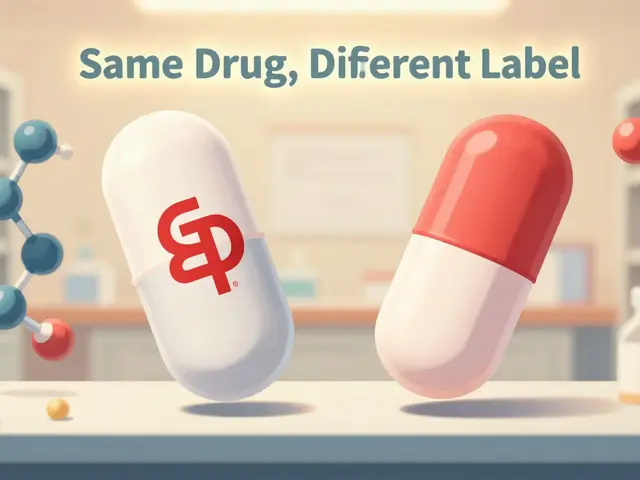
Understanding Alcohol Dependence Syndrome
Alcohol dependence syndrome, also known as alcoholism, is a chronic disease that affects millions of people worldwide. It is characterized by an uncontrollable desire to consume alcohol, an inability to control one's drinking, and physical dependence on alcohol. Recognizing the signs of alcohol dependence in a loved one is crucial for helping them seek the treatment they need. In this article, we will discuss five key aspects to help you identify alcohol dependence in someone close to you.
Signs of Increased Alcohol Tolerance
One of the first signs of alcohol dependence is an increased tolerance for alcohol. This means that your loved one needs to consume more alcohol to achieve the same effects as before. They may start drinking larger quantities or more frequently to feel the same level of intoxication. You may notice them finishing their drinks faster than others, ordering multiple drinks at once, or consuming alcohol in secrecy. This increased tolerance is a clear indication that their body is becoming physically dependent on alcohol, and it's time to address the issue.
Physical Symptoms and Withdrawal
As alcohol dependence progresses, your loved one may start to experience physical symptoms related to their alcohol consumption. These can include shaking hands, sweating, nausea, vomiting, headaches, and insomnia. These symptoms are especially noticeable when the person tries to cut back or stop drinking. This is because their body has become dependent on alcohol, and withdrawal symptoms kick in when they don't consume it. If you notice your loved one experiencing these symptoms, it's essential to encourage them to seek professional help for their alcohol dependence.
Neglecting Responsibilities and Strained Relationships
Another sign of alcohol dependence is when your loved one starts to neglect their personal and professional responsibilities. This could include missing work, not taking care of their household chores, or neglecting their personal hygiene. Their relationships with friends, family, and colleagues may also become strained as a result of their alcohol consumption. They may become increasingly isolated, preferring to spend time alone with their drink rather than socializing with others. If you see these changes in your loved one's behavior, it's crucial to have an open and honest conversation with them about their alcohol use.
Loss of Control Over Drinking
When someone is suffering from alcohol dependence syndrome, they often lose control over their drinking habits. This can manifest in various ways, such as drinking in situations where it's inappropriate or dangerous, like before work or while driving. They may also find it difficult to stop drinking once they've started, even if they initially planned to have just one or two drinks. This loss of control is a significant red flag, indicating that your loved one may need help managing their alcohol consumption.
Continued Drinking Despite Negative Consequences
Finally, one of the most telling signs of alcohol dependence is when your loved one continues to drink despite experiencing negative consequences. This could include health problems, financial difficulties, or legal issues related to their alcohol consumption. They might also experience problems in their relationships or work due to their drinking habits. If your loved one recognizes these negative consequences but still can't seem to stop drinking, it's a clear sign that they may be suffering from alcohol dependence syndrome.
In conclusion, recognizing the signs of alcohol dependence in a loved one is crucial for helping them get the help they need. By understanding the signs of increased alcohol tolerance, physical symptoms and withdrawal, neglect of responsibilities, loss of control over drinking, and continued drinking despite negative consequences, you can better support your loved one in their journey towards recovery. Remember to approach the situation with empathy and understanding, as overcoming alcohol dependence can be a challenging and emotional process. Encourage your loved one to seek professional help and be there to support them every step of the way.


9 Comments
I can't stress enough how crucial it is to recognize these red flags before the situation escalates 🚨 proper language matters and so does compassion but you must also set firm boundaries never excuse harmful behavior 😠
Recognizing alcohol dependence is a multifaceted process that begins with careful observation of behavioral patterns. First, increased tolerance is often evident when an individual needs to consume more alcohol to feel the same effect they once achieved with fewer drinks. Second, physical withdrawal symptoms such as shaking, sweating, nausea, and insomnia become more pronounced when consumption is reduced, indicating physiological dependence. Third, neglect of responsibilities, including missed work days, unattended chores, and deteriorating personal hygiene, signals that alcohol has taken priority over essential life functions. Fourth, strained relationships often emerge as the individual isolates themselves, preferring the company of alcohol over friends and family. Fifth, loss of control over drinking manifests when the person continues to consume alcohol in inappropriate or dangerous situations, such as before operating a vehicle. Sixth, the persistence of drinking despite clear negative consequences, such as health issues, financial hardship, or legal problems, underscores the compulsive nature of the disorder. Seventh, the emotional volatility and mood swings that accompany withdrawal can further alienate loved ones and erode support networks. Eighth, the use of alcohol as a primary coping mechanism for stress or emotional pain reinforces the cycle of dependence. Ninth, frequent secretive drinking or lying about consumption obscures the true extent of the problem, making intervention more difficult. Tenth, an increasing preoccupation with obtaining alcohol, including spending excessive time and resources to acquire it, reveals that the substance has become a central focus. Eleventh, the presence of tolerance and withdrawal together satisfies diagnostic criteria for alcohol dependence syndrome, as outlined by clinical guidelines. Twelfth, early intervention, ideally through open and empathetic conversation, can prevent further escalation and facilitate access to professional treatment. Thirteenth, involving healthcare professionals who can provide medication-assisted therapy and counseling improves the likelihood of sustained recovery. Fourteenth, support groups such as AA or community-based programs offer peer encouragement and accountability, which are vital components of healing. Finally, maintaining compassion while establishing firm boundaries helps the loved one feel supported rather than judged, fostering an environment conducive to change.
One must contemplate the ontological implications of dependence, for the individual's volition becomes subordinated to an external chemical agent, thereby eroding the very notion of autonomous agency. The escalation of tolerance signifies a neuroadaptive recalibration, a testament to the brain's plasticity when subjected to chronic intoxication. Physical withdrawal phenomena constitute a somatic testimony to the body's recalibrated homeostasis, evidencing the pathological entanglement of organism and substance. The abandonment of civic duties and interpersonal obligations reflects a reorientation of priorities toward the intoxicant, a redeployment of finite temporal resources. Moreover, the persistence of consumption despite manifest detriment underscores a paradoxical valuation wherein immediate relief outweighs long‑term welfare. In sum, these indicators coalesce to form a coherent diagnostic tableau, demanding prompt and compassionate intervention.
Analyzing the previous exposition reveals a commendable grasp of neurobiological adaptation yet it glosses over the sociocultural mechanisms that reinforce the cycle; the argument would benefit from integrating data on community-level stressors and accessibility of treatment resources, thereby presenting a more holistic critique.
hey folks just wanted to chime in i think it helps to be kind and listen even if the person is actin like they dont care sometimes just be there and dont forget ur own self care too
the points raised are solid and show a balanced view while also reminding us that empathy can be a catalyst for change rather than a handicap
Providing structured coping strategies, such as setting clear boundaries and encouraging professional counseling, can empower both the individual and their support network to navigate the complexities of recovery effectively.
Yo, when you see the tolerance curve spiking, that's a clear KPI indicating the subject's physiological baseline has shifted, so the next step is to activate the intervention protocol and engage the care pathway.
Recognizing these signs promptly paves the way for hopeful recovery.